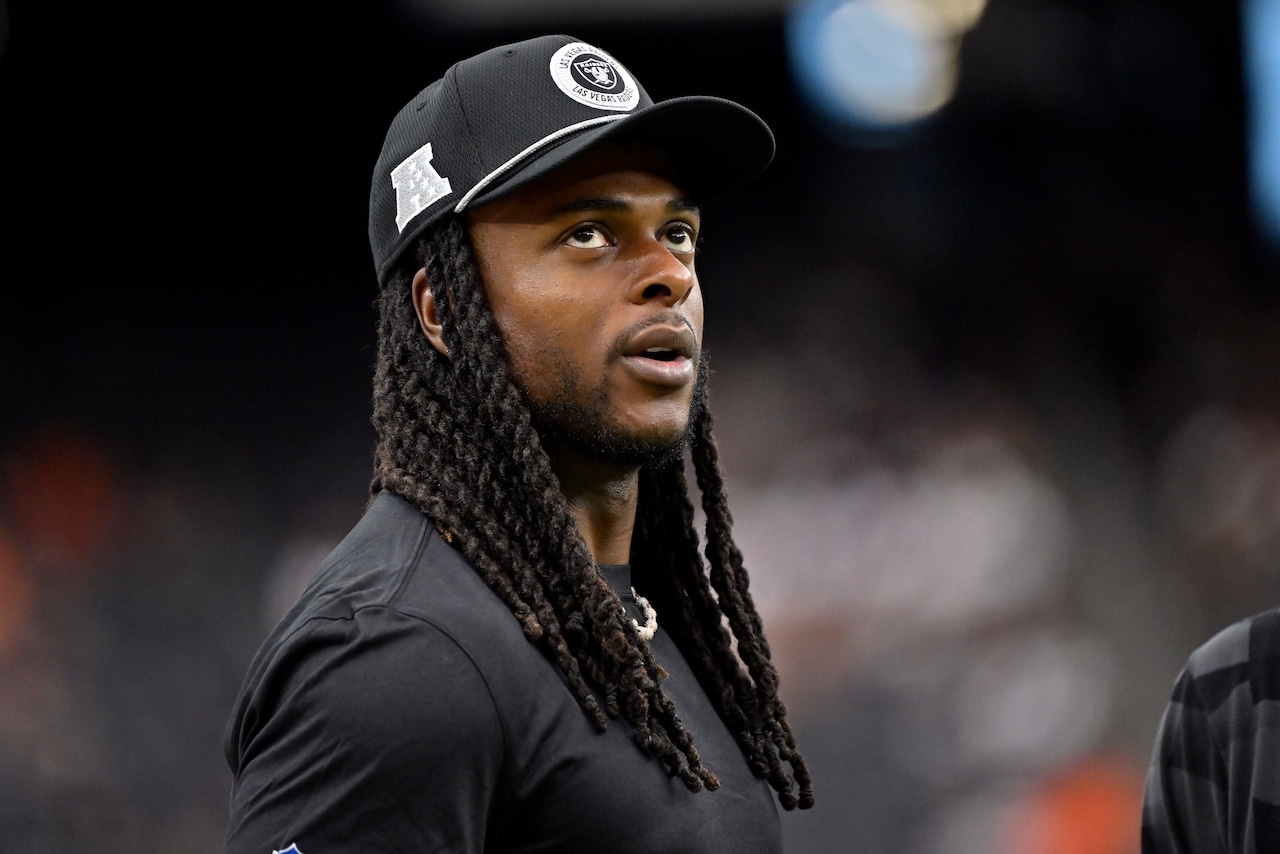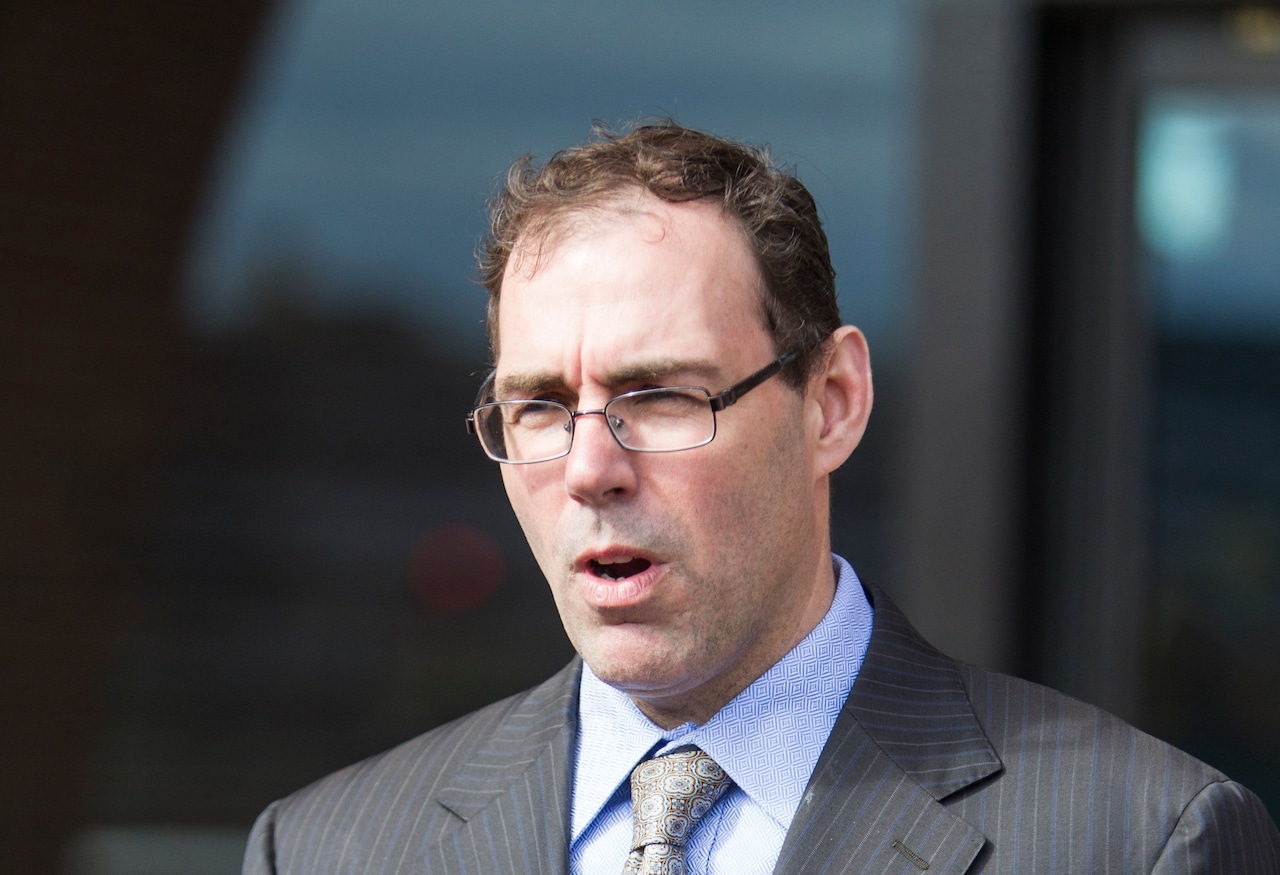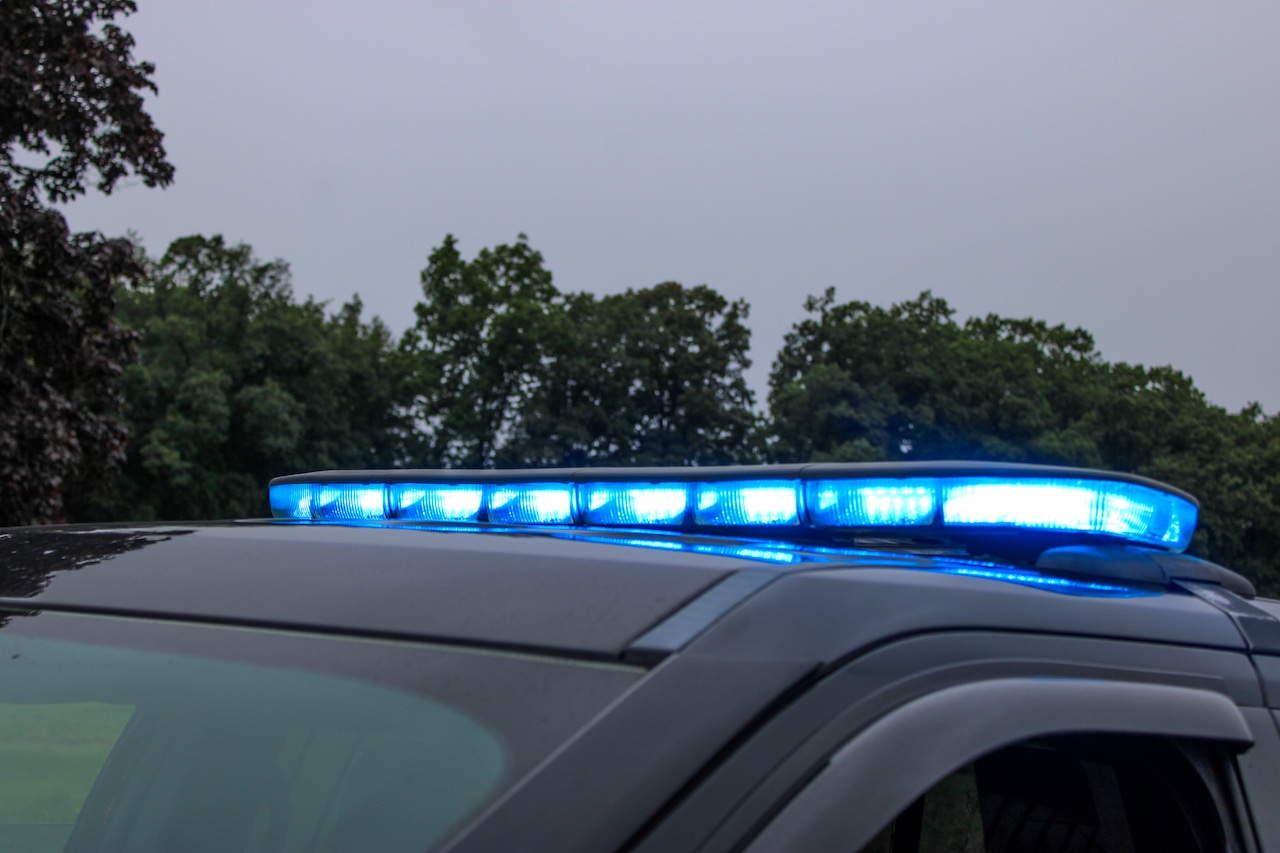The race for the White House and Massachusetts’ U.S. Senate campaign both are getting a lot of public attention this campaign season.
But they’re not the only acts in town. Not by a long shot.
Bay State voters will also cast their ballots this fall on a quintet of ballot questions that, if approved, could reshape public policy for years to come, often in the most direct and interesting ways.
Some of these ballot questions are pretty high stakes.
They include those that would scrap the 10th-grade MCAS exam as a high school graduation requirement and another that would let ride-share drivers form unions and engage in collective bargaining.
Read More: Election 2024: Your guide to Massachusetts’ November election
Interest groups on both sides of those questions, and others, are spending some serious money on advertising campaigns to influence public opinion.
Below, you’ll find an explanation of each question, what a “yes” or “no” vote means, who’s been spending money, and what the polling tells us about how well-informed you and your friends and neighbors are about each question.
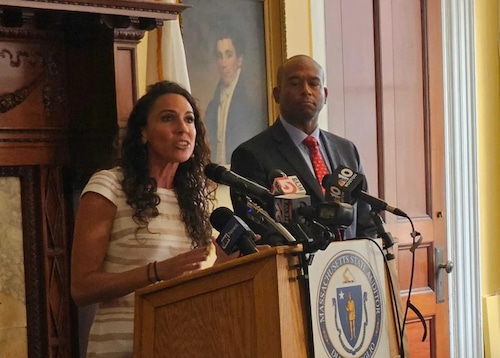
Auditor Diana DiZoglio and Michael Leung-Tat, deputy auditor and general counsel, host a press conference in the auditor’s office on Aug. 20. (Sam Drysdale/State House News Service)State House News Service
Question 1: Auditing the state Legislature
This one asks voters whether or not they want to give state Auditor Diana DiZoglio the authority to audit the state Legislature and remove some existing regulations regarding the auditing process.
A “yes” vote means DiZoglio, an ex-lawmaker, could evaluate her former colleagues on such standards as purchasing rules and employee training. A “no” vote means she could not.
“This is a nonpartisan issue, it impacts all families in Massachusetts, regardless of bank balance or political background,” she told MassLive last fall. “… It’s about us as the people of Massachusetts, regardless of where we stand, about getting information. It’s about how our tax dollars are being spent on Beacon Hill. So we can get a seat at the table.”
State lawmakers have pushed back hard against this effort, arguing DiZoglio doesn’t have the authority to audit the Legislature. Even if voters do approve it, a nasty court fight seems likely.
“That your office has the legal authority to conduct an audit of the General Court is a claim entirely without legal support or precedent, as it runs contrary to multiple, explicit provisions of the Massachusetts Constitution, and is wholly unnecessary as the public currently has full and ready access to the House’s financial information,” state House Speaker Ronald J. Mariano, D-3rd Norfolk, wrote in a letter to DiZoglio last fall.
What the polls say: This one might be a lightning rod on Beacon Hill, but it’s not getting much traction past Tremont Street. Just 39% of respondents to a University of New Hampshire poll last month said they’d heard some or a lot about it.
The air wars: A quick search of YouTube yielded several broadcast interviews with DiZoglio, as well as television news stories about the Methuen Democrat’s fight to audit her former colleagues.
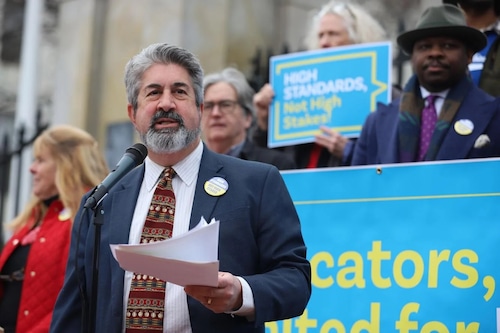
Massachusetts Teachers Association President Max Page speaks at a March 4 rally for a ballot question to remove the MCAS graduation requirement outside the Statehouse. (Sam Drysdale/State House News Service)State House News Service
Question 2: The MCAS exam
If you’re a parent of a school-aged child, a teacher or someone who pays attention to public education, then you probably have thoughts about this ballot question.
A “yes” vote would scrap the 10th-grade MCAS examination as a high school graduation requirement. But it wouldn’t eliminate the test.
Instead, school districts “would set their own criteria for graduation, informed by state educational standards but not beholden to any particular state assessment,” according to The Center for State Policy Analysis at Tufts University.
Because the MCAS requirement hardly ever prevents students from graduating, the Tufts analysis found that dropping it would free teachers from teaching to the test and give them more time to focus “more on knowledge and skills that fall outside of test parameters.”
Notably, U.S. Reps. Lori Trahan, D-3rd District, and Jim McGovern, D-2nd District, each have endorsed dropping the requirement. The Massachusetts Teachers Association, the union that represents tens of thousands of educators statewide, also is pushing for a “yes” vote.
Opponents, such as Keri Rodrigues, founder and head of the National Parents Union, said keeping the test as a graduation ensures that students are held to high standards.
“I think it’s incredibly important to do more than just give my children a certificate of attendance, saying that they have shown up in school every single day for 12 years,” Rodrigues told GBH News. “What that high school diploma has to mean is that they are proficient, that they are prepared, that we have kept our promise that if we have them in school and they are doing their best and they’re able to pass MCAS, that they are ready to go on to the future.”
What the polls say: More than half of respondents (56%) to last month’s University of New Hampshire poll said they’d heard some or a lot about the ballot question.
The air wars: If you’ve been watching TV lately, you’ve probably noticed the glossy commercials urging you to vote “Yes on 2.”
It’s part of an eight-figure buy by a group called the Committee for High Standards Not High Stakes, which is backed substantially by the Massachusetts Teachers Association. The Massachusetts School Counselors Association also is part of the committee.
The group started airing its 30-second spot in the Boston television market, which serves the eastern half of the state, on Sept. 24.
Opponents launched a $250,000 ad campaign in June, WBUR reported.
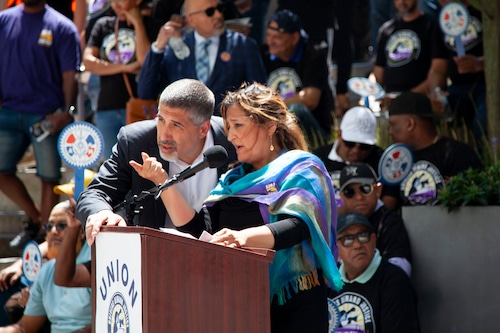
Mike Vartabedian, left, and Roxana Rivera, the leaders of a ballot question campaign seeking to give Uber and Lyft drivers the right to unionize, speak at a July 2 press conference. (State House News Service, File)State House News Service
Question 3: Union rights for ride-share drivers
A “yes” vote on this question would give transportation network drivers (Think Uber and Lyft drivers, but not your DoorDash delivery person), who are now independent contractors, the right to form a union and engage in collective bargaining.
According to the Tufts analysis, this approach, which is known as “sector-based bargaining” is a new one in the United States. And could face “serious legal challenges.”
While this could result in better pay and benefits for drivers, it also could boost the price of rides and curtail usage, according to the Tufts analysis.
Uber has said it won’t actively campaign against the question, the Boston Business Journal reported.
Kelly Cobb-Lemire, an organizer with the advocacy organization Massachusetts Drivers United, which opposes the measure, told WBUR that the current question is “too limiting.” She told the station that she’d like to see delivery drivers get the right to form a union.
What the polls say: Because this is a consumer issue, there’s some reasonable public knowledge. Half of all respondents to that University of New Hampshire poll said they’d heard some or a lot about the ballot question.
The air wars: Last month ride-share drivers kicked off a 62-day push to win organizing rights that includes a seven-figure advertising campaign. They also touted endorsements from U.S. Reps. Jim McGovern, D-2nd District and Ayanna Pressley, D-7th District, along with Massachusetts Attorney General Andrea J. Campbell.
Earlier this year, Campbell’s office reached a $175 million settlement with Uber and Lyft that will require the companies to pay $32.50 an hour and provide a “suite of benefits.”
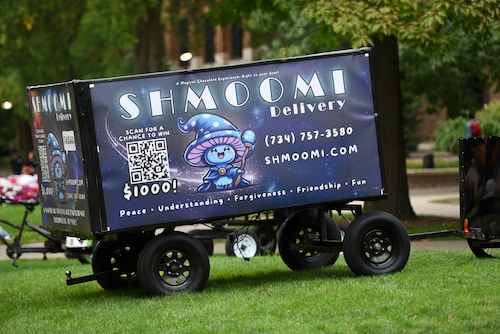
The Entheofest psychedelic plant and mushroom festival on the University of Michigan Diag in Ann Arbor on Sept. 22, 2024. (Ryan Stanton/MLive.com)Ryan Stanton | The Ann Arbor News
Question 4: Psychedelics
A “yes” vote on this question would allow a group of naturally occurring psychedelic drugs — psilocybin, psilocyn, mescaline, dimethyltryptamine (DMT), and ibogaine — to be grown, share, and used at home, as well as by licensed professionals in a clinical setting, according to the Tufts analysis.
Advocates have touted the benefits of the substances when it comes to treating anxiety and other disorders, The Republican newspaper of Springfield, reported in September.
There are concerns, however, about the health harms associated with psychedelic substances. For instance, “ibogaine can cause acute cardiac problems, while DMT (used in ayahuasca) may have lasting neurological effects,” the Tufts analysis noted.
And “risks seem more muted with psilocybin (found in “magic mushrooms”) and mescaline (the active ingredient in peyote), but these drugs can still trigger significant adverse reactions, especially for those with pre-existing mental health issues,” according to the Tufts analysis.
One caveat: Don’t expect to see psychedelic dispensaries start popping up like, well, mushrooms, in the same way that you can go retail shopping for recreational cannabis.
If you want them, you’ll have to grow your own, find a friend who’s willing to share or use them at a licensed therapy center, according to the Tufts analysis.
What the polling says: Barely more than a third of respondents (36%) to that University of New Hampshire poll said they’d heard some or a lot about the ballot question.
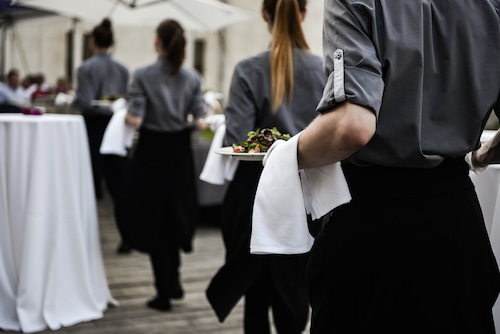
A question on November’s general election ballot proposes that the pay for tipped workers be boosted to the statewide minimum wage of $15 an hour (Adobe Stock Image).SL – stock.adobe.com
Question 5: Boosting the minimum wage for tipped workers
A “yes” vote on this question would authorize gradually increasing the wage for tipped workers (now $6.75 an hour) until it meets the state’s $15-an-hour minimum wage by 2029. It would still permit tipping in addition to the minimum wage.
If you’ve ever waited on tables, you know what a boost tips can be for the take-home for the average restaurant worker.
While the ballot question would still permit tipping, restaurants would be allowed to pool and share those tips with cooks and other back-of-the-house staff who normally do not interact with customers.
That’s a common practice in states without a tipped minimum wage, according to the Tufts analysis.
The advocacy group One Fair Wage, which is a major force behind the “yes” campaign, has argued that it’s past time to end “poverty wages for service workers.”
An industry-backed group called The Committee to Protect Tips has argued that the campaign doesn’t represent the opinions of Bay State restaurant workers, and is being pushed by the out-of-state One Fair Wage.
The group points to polling data compiled by the Massachusetts Restaurant Association, an industry trade group, showing that 86% of workers believe the current system works just fine and that 90% said they believe they’ll earn less if tipped wages are eliminated.
What the (other) polling says: As you might expect with a key pocketbook issue, there’s a good degree of public interest in the tipped wage question. Nearly six in 10 (59%) likely voter respondents to the University of New Hampshire poll said they’d heard some or a lot about the issue.
The air wars: The Committee to Protect Tips was sitting on $342,185 at the beginning of September, according to filings with the state’s Office of Campaign and Political Finance. By mid-month, that total had dipped to $11,331 on spending of $354,657 and receipts of $23,803, state filings showed.
Last month, the opposition group released a 30-second advertisement taking its arguments against the ballot question to the airwaves.
One Fair Wage, meanwhile, has enlisted some high-profile support for its campaign. Last month, the group held a fundraiser in West Hollywood headlined by actor/model Chrissy Teigen.
Other confirmed attendees at the event include Sarah Paulson, Keegan-Michael Key, June Diane Raphael, Ike Barinholtz, Jesse Tyler Ferguson and Matt Bomer, the organization said in an email.



